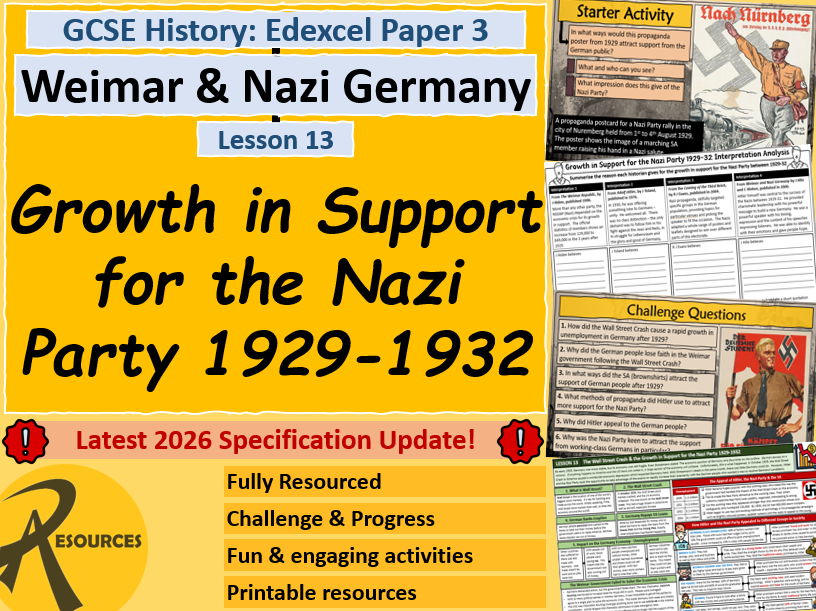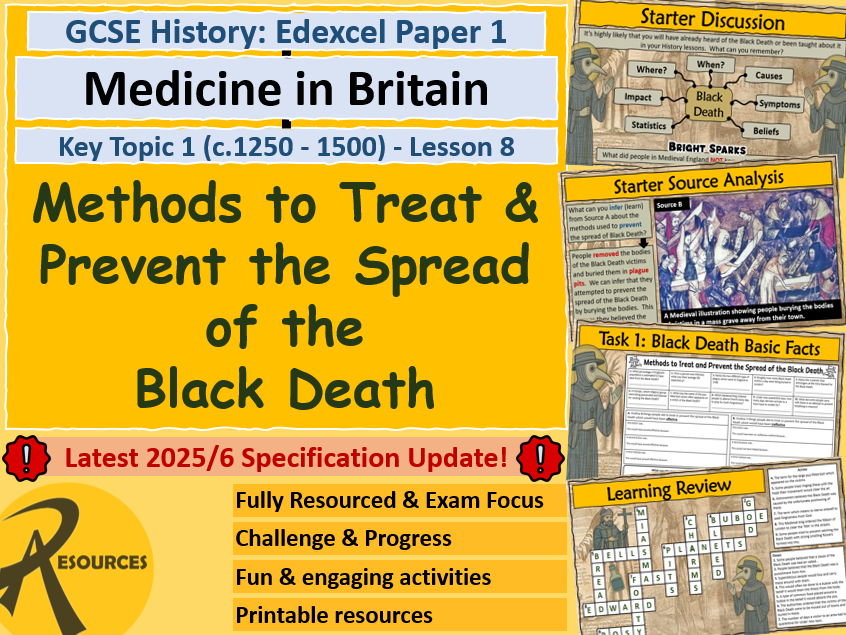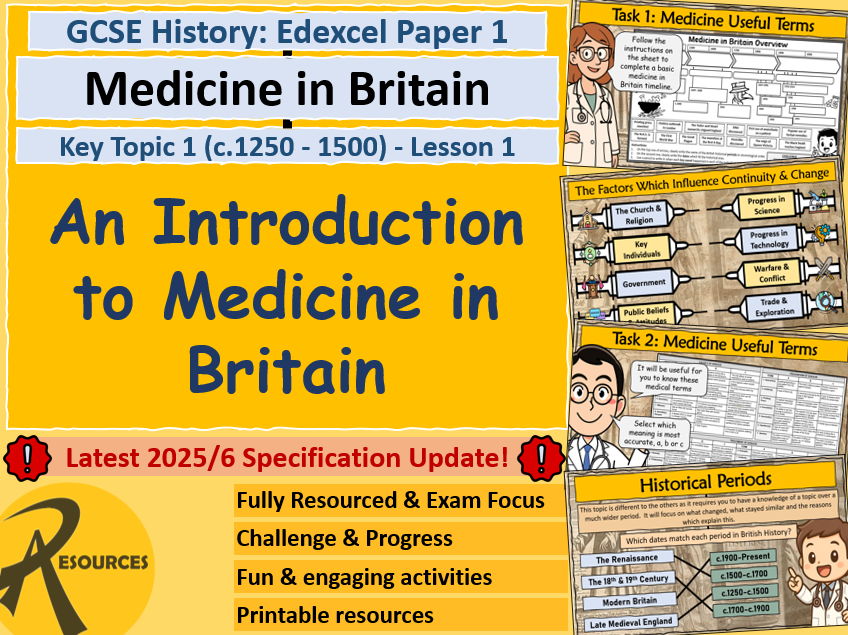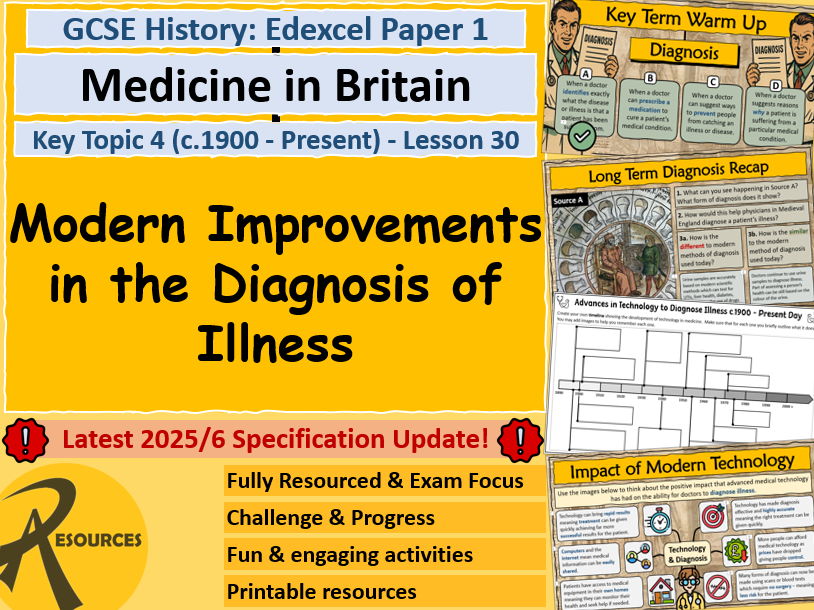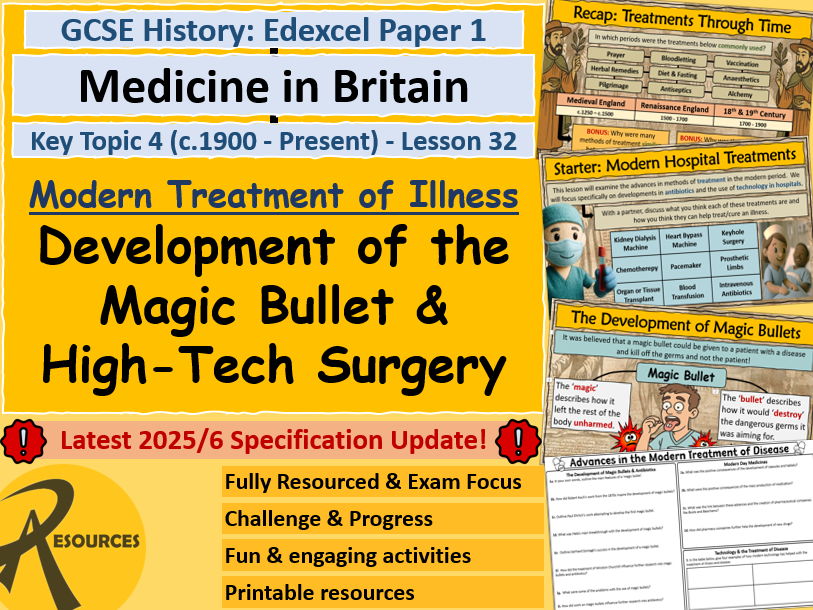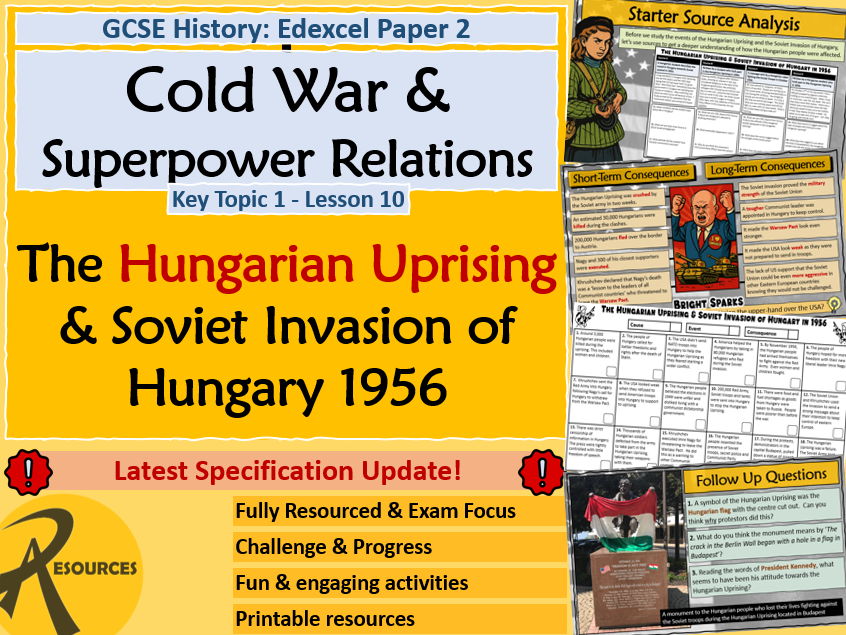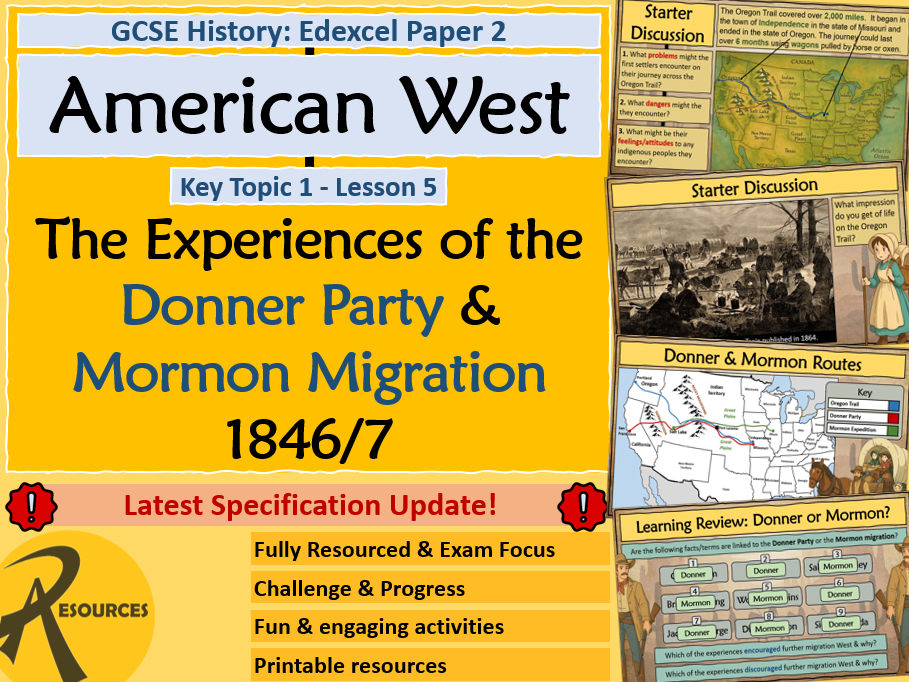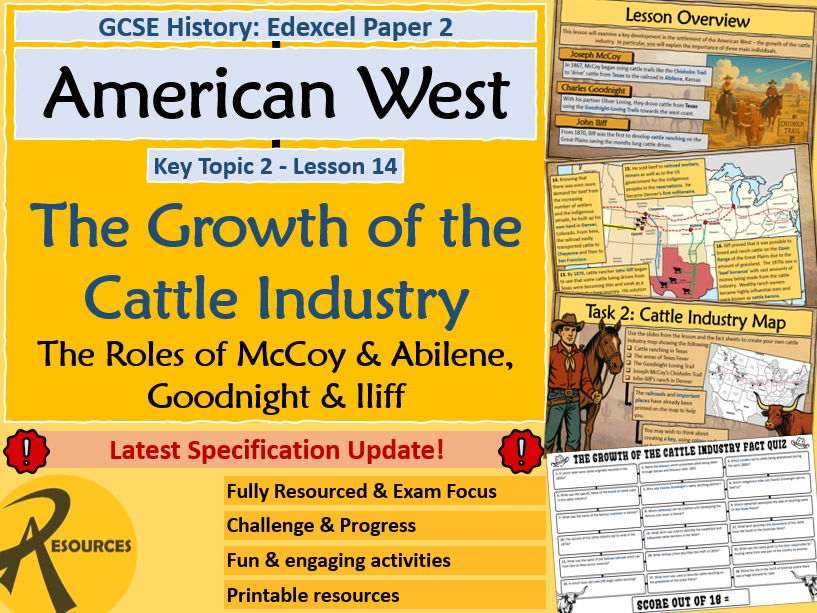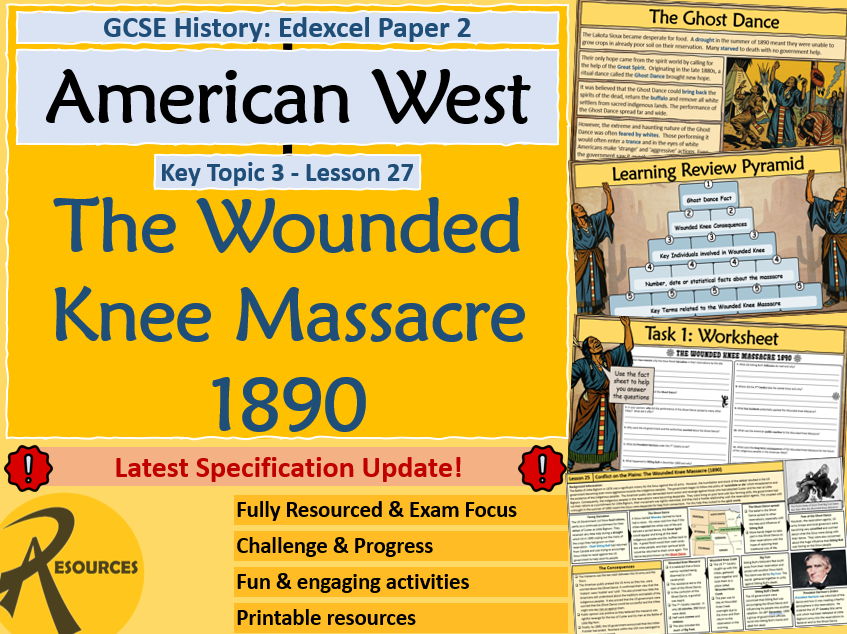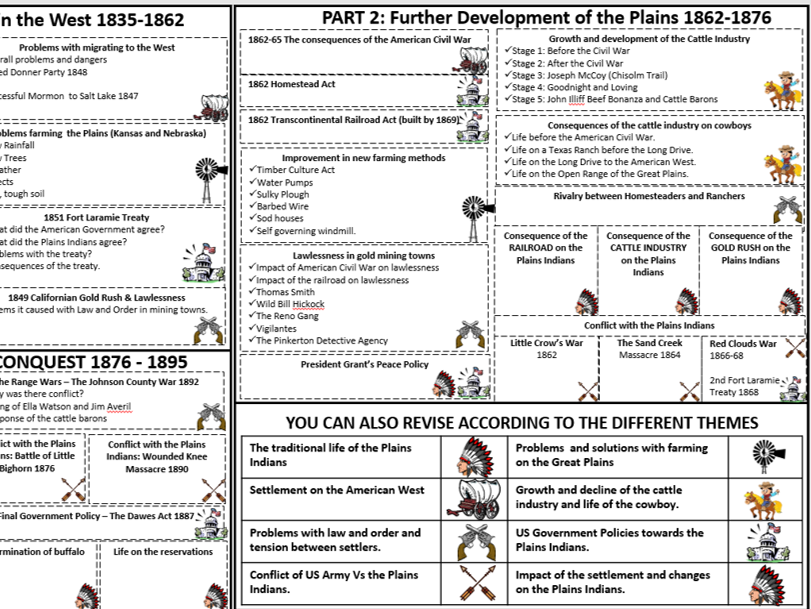RA Resources
Welcome to RA Resources. I have an extended range of fully resourced, high quality History lessons for KS2, KS3 and GCSE aimed at schools, tutors and home learning. Having taught History abroad and then in Cornwall for 20 years, these lessons reflect my creativity and teaching experience. Please feel free to email me with any enquiries about the resources on offer. You can keep up to date with my latest published lessons using the Facebook link in my shop.

